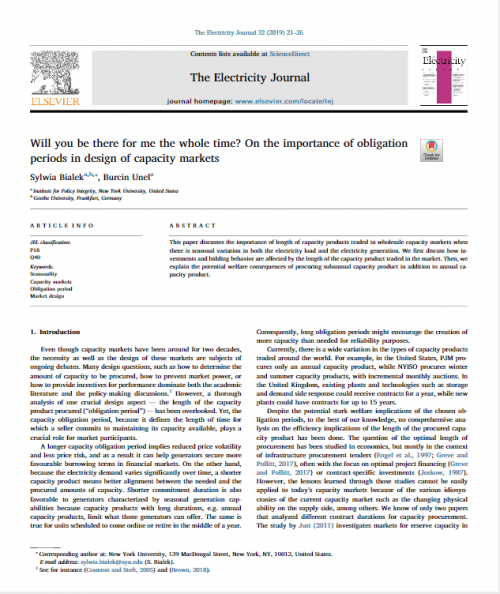-
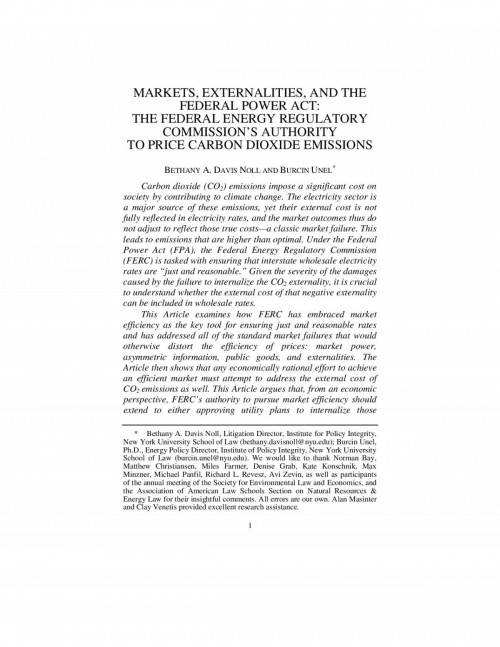
Markets, Externalities, and the Federal Power Act
The Federal Energy Regulatory Commission’s Authority to Price Carbon Dioxide Emissions
This article, published in the New York University Environmental Law Journal, shows how the Federal Energy Regulatory Commission (FERC) must attempt to address the external cost of carbon dioxide (CO2) emissions to achieve an efficient electricity market. CO2 emissions impose a significant cost on society by contributing to climate change. The electricity sector is a major source of these emissions, yet their external cost is not fully reflected in electricity rates, and the market outcomes thus do not adjust to reflect those true costs—a classic market failure. This leads to emissions that are higher than optimal.
-
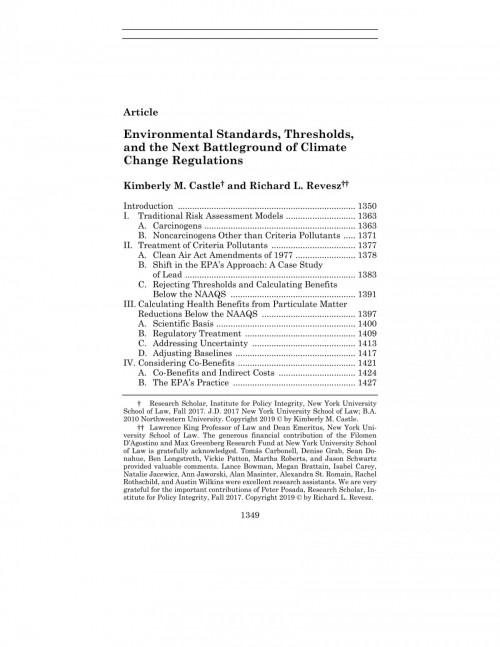
Environmental Standards, Thresholds, and the Next Battleground of Climate Change Regulations
This article, published in the Minnesota Law Review, addresses a central battleground of the debate about the future of greenhouse gas regulations: the valuation of particulate matter reductions that accompany reductions in carbon dioxide emissions. The benefits from particulate matter reductions are substantial for climate change rules, accounting for almost one half of the quantified benefits of the Obama Administration’s Clean Power Plan. These benefits are also significant for regulations of other air pollutants, making this issue one of far-reaching importance for the future of environmental protection.
-
Will You Be There for Me the Whole Time?
On the Importance of Obligation Periods in Design of Capacity Markets
This paper discusses how variations in the availability of various resources (generation seasonality) and the fluctuations in the electricity usage (load seasonality) relate to efficient capacity market design. Even though capacity markets have been around for two decades, the necessity as well as the design of these markets are subjects of ongoing debates. Many design questions, such as how to determine the amount of capacity to be procured, how to prevent market power, or how to provide incentives for performance dominate both the academic literature and the policymaking discussions. Another design aspect that plays a crucial role for market participants is the length of the capacity product procured (“obligation period”), because it defines the length of time for which a seller commits to maintaining its capacity available. However, a thorough analysis of obligation periods has been overlooked by literature and policymaking discussions. Our article works to provide this analysis.
-
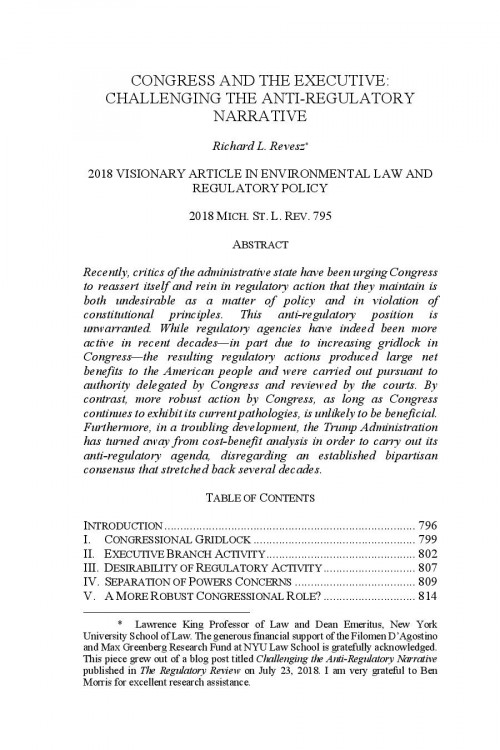
Congress and the Executive
Challenging the Anti-Regulatory Narrative
Critics of the administrative state have been urging Congress to rein in regulatory action, claiming that regulations created by executive agencies are undesirable as a matter of policy and are in violation of constitutional principles. In a troubling development, the Trump Administration has also turned away from cost-benefit analysis in order to carry out its anti-regulatory agenda, disregarding an established bipartisan consensus that stretched back several decades. This article, published in the Michigan State Law Review, argues that this anti-regulatory position is unwarranted. These executive regulatory actions produced large net benefits to the American people, were carried out pursuant to authority delegated by Congress, and were reviewed by the courts. By contrast, more robust action by Congress, as long as Congress continues to exhibit its current gridlock on important policy issues like climate change, is unlikely to be beneficial.
-
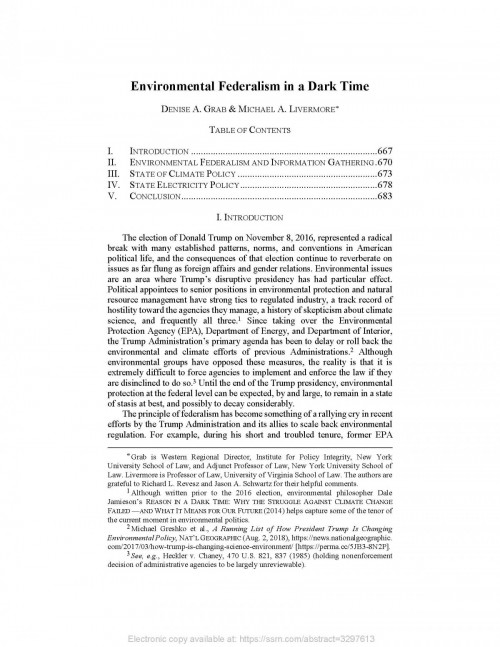
Environmental Federalism in a Dark Time
The principle of federalism has become something of a rallying cry in recent efforts by the Trump Administration and its allies to scale back environmental regulation. For example, during his short and troubled tenure, former EPA Administrator Scott Pruitt argued that the federal government has become too intrusive and that states should be returned to a position of “regulatory primacy” on environmental matters. Some states have responded to the impeding federal retreat by forging ahead. For example, California has continued to take aggressive steps to curb greenhouse gas emissions, and has even taken steps to project its influence internationally. However, despite these hopeful signs of resistance, the net effect of the Trump Administration’s efforts to scale back federal environmental policy is likely to undermine rather than energize state environmental policymaking, especially in Republican-dominated and swing states, where the climate policy vacuum is most acute.
Viewing all publications in Academic Articles/Working Papers

